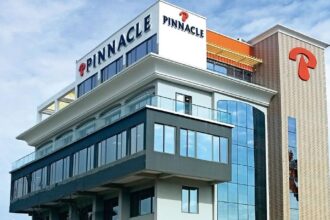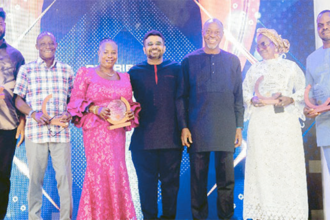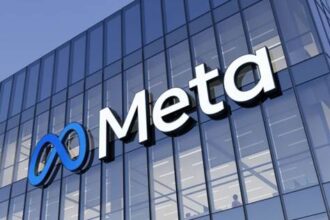The Managing Director of FairMoney Microfinance Bank Nigeria, Henry Obiekea, has called for a national push towards fair and inclusive digital finance as the major driver of achieving the $1tn economic agenda of the current administration.
Obiekea made this call in a piece he authored titled “Why Fair Digital Access is the Foundation of Nigeria’s 2030 $1 Trillion Roadmap Ambition”, which was made available to The Press on Wednesday.
The report asserts that the President Bola Tinubu administration had set a target of hitting a one trillion-dollar economy by the end of the decade.
Obiekea observed that while the goal was audacious, it was well within reach, especially with a youthful population. He said: “However, harnessing this potential requires more than just ambition; it demands inclusive capital. Today, the brilliant ideas generated by young Nigerians – from tech start-ups to agribusiness ventures, often stall due to a fundamental challenge: access to finance. The Finance Minister, Mr Wale Edun, recently amplified this imperative, urging financial institutions to actively finance the ideas of young Nigerians, warning that failure to do so risks pushing this talent into unregulated, unproductive ecosystems. This official focus underscores a critical truth: financial inclusion is the primary driver for meeting the $1tn target.
“Despite Nigeria’s status as a continental leader in technology adoption, a significant portion of its adult population remains financially underserved. Recent surveys show that the total gap, those entirely excluded or reliant only on informal systems, stands at 36 per cent, representing approximately 40 million productive individuals. This population includes 26 per cent of adults who are fully cut off from the formal system, while another 10 per cent rely solely on informal services. Persistent gaps are especially pronounced across regional and demographic lines, particularly in the North and among low-income groups. Relegated largely to the informal economy, these millions of people are unable to save securely, build credit, or access the capital needed for scale. While mobile penetration, agent networks, and digital onboarding are actively narrowing the divide, sustained progress in inclusion-driven growth fundamentally demands access to credit.”
The bank MD added that the low credit-to-GDP ratio in Nigeria, which is between 13 and 19 per cent of GDP, marked significant underdevelopment in the domestic credit market.
“The opportunity lies in the digital revolution. With mobile phone usage soaring (over 93 per cent of adults), the physical barrier of the bank branch has been rendered obsolete. Fintech companies in Nigeria have brilliantly seized this moment, leveraging mobile technology and data science to catalyse inclusion. Digital access alone, however, is insufficient. The engine for sustained economic growth is authentic financial inclusion, characterised by fairness and transparency. Without these twin values, digital finance risks replacing physical exclusion with predatory models characterised by hidden charges and opaque terms that ultimately erode trust, leading to financial distress and a retreat from the formal economy. To truly empower the populace and grow the GDP, every transaction must build, not break, the customer’s financial life. This is the principle that elevates financial services from a mere utility to a foundation of national economic strength.
“This commitment to fairness is precisely where FairMoney acts as a crucial lever for the national ambition. Operating as a licensed microfinance bank providing financial services through our mobile app, FairMoney’s model directly tackles the barriers to entry by making every interaction transparent and efficient. Our commitment to ‘no hidden charges’ means customers understand the full cost of credit upfront, fostering a responsible borrowing culture. We leverage innovation to serve the excluded. We focus on accessibility and speed to enable instant account opening and rapid loan approvals by leveraging alternative data and advanced scoring algorithms, using technology for operational efficiency, such as Maps for remote operational address verification,” he said.
Obiekea maintained that true financial inclusion acts as a social safety net, as it provides a platform for millions of productive economic units, especially the youth and the underbanked, to become active and invested contributors to the nation’s growth story.
“The path to a $1tn economy is clear: it must be built on the principle of inclusion. This ambition will be realised by empowering the underbanked financially and leveraging digital solutions to dramatically improve access to finance across Nigeria. Financial institutions must champion Fair Digital Access, a commitment to innovation that FairMoney is already pioneering. In the digital age, trust is the new currency. To fully unlock Nigeria’s trillion-dollar destiny, we must earn this trust through consistent value, transparency, and the fair and equitable deployment of financial capital,” he concluded.















